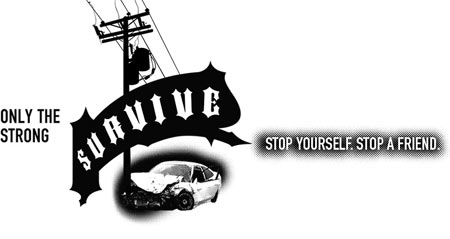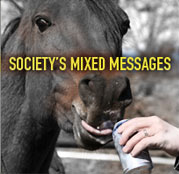
Hard Facts
Risk Factors and Signs
Teens who use drugs and alcohol can have bad things happen to them, like car crashes, DUIs, failing in school, fights, suicide, and unprotected sex. Alcohol or drugs are a factor in nearly 40 percent of violent crimes. In 2005, 492,655 emergency room visits involved either alcohol and another drug (all ages) or just alcohol for patients younger than 21.
Females take a bigger hit than males when it comes to drinking because they have less of the liver enzyme that break down alcohol. So a female's body breaks down alcohol more slowly than a male's body even if the two people weigh the same and drink the same amount of alcohol over the same period of time. Since alcohol stays in a female's body longer, it causes more damage. Birth control pills and other medications influence estrogen, which also can slow down the rate at which alcohol leaves the body.
Some teens are more at risk for developing serious alcohol and drug problems.
They are those who:
- Begin experimenting with alcohol and drugs early;
- View alcohol and other drugs favorably;
- Have a poor relationship with their parents;
- Show aggressive behavior at age 5�7, especially boys;
- Have friends who drink or use drugs;
- Don't like school;
- Have a family history of substance abuse;
- Are depressed;
- Have low self-esteem; and
- Feel like they don't fit in or are out of the mainstream.
Signs of teen alcohol and drug abuse:2
- Physical: fatigue, repeated health complaints, red or glazed eyes, and a lasting cough; Emotional: personality change, sudden mood changes, irritability, acting out, poor self-esteem, bad judgment, depression, general lack of interest;
- Family: starting arguments, breaking rules, or withdrawing from family;
- School: decreased interest, bad attitude, drop in grades, many absences, skipping school, discipline problems; and
- Social problems: new friends who aren't interested in usual home and school activities, problems with the law, and changes in dress and music.
The warning signs listed above also can be signs of other problems. You should recognize the signs of trouble but can't be expected to know exactly what is wrong with your teen. So if you notice signs of trouble, the best way to help is to show your teen you care by talking about the use or abuse of alcohol and other drugs.
- American Academy of Child & Adolescent Psychiatry, 2004. Accessed 11/16/07, www.aacap.org.



